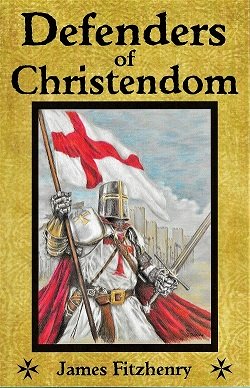Don't miss your chance to invest in 'Fabiola'!
Visit our crowd-funding page to help make Catholic movies!
- Home
- The Importance Of Good Stories
- Defenders of Christendom
Inspirational Short Stories To Keep Valor Alive In Today's Modern World
Thanks to James Fitzhenry's inspirational short stories collected in his book, Defenders of Christendom, Catholics can relive the heroic deeds performed by crusaders during the Muslim aggression that was so prominent during the Middle Ages.
But what sets apart these brave and daring souls who were willing to risk everything for the defense of the western world from their fellow Catholics who did not raise a finger in their defense? Was there a threat from the inside that was almost as colossal as the infidel attacks? Is this mysterious enemy also still alive and well?
The Misuse Of The Word Violence
"You're so violent." The blonde was only sore that I forcefully shoved her out of the way of her frisbee catch, giving our team a chance to win and depriving her's of winning for the time being. She walked away without another word. But the strange word "violent" was still resounding in my ears.
Of course, I wanted to win, and I wanted to win badly enough that I was going to use force. But this girl telling me this over a petty physical struggle left me perplexed. Violent? That is certainly no way that reasonable young adults talk to each other at a field game.
I am reminded of author Robert E. Dunn boldly saying, "I like people who are physical and have good manners." He used the word physical but he means the admirable youthful sense of action that is so common in Catholics but has been termed by the modern world as "violent".
In his book, Defenders of Christendom, James Fitzhenry sums up this attitude in the opening chapter: "It is a modern fallacy to suggest that a Catholic must be a complete pacifist who will stand by and do nothing to defend his faith, his culture, or his homeland against oppression."
Mr. Fitzhenry goes on to say that the reason for this confusion is the failure to make the proper distinction between the words "violent" and "force". One is certainly an evil and is defined as an unjust application of coercion. Force on the other hand is the use of coercion under the legitimate authority in defense of justice.
A Long Line Of "Violent" Heroes As Recounted In This Collection Of Inspirational Short Stories
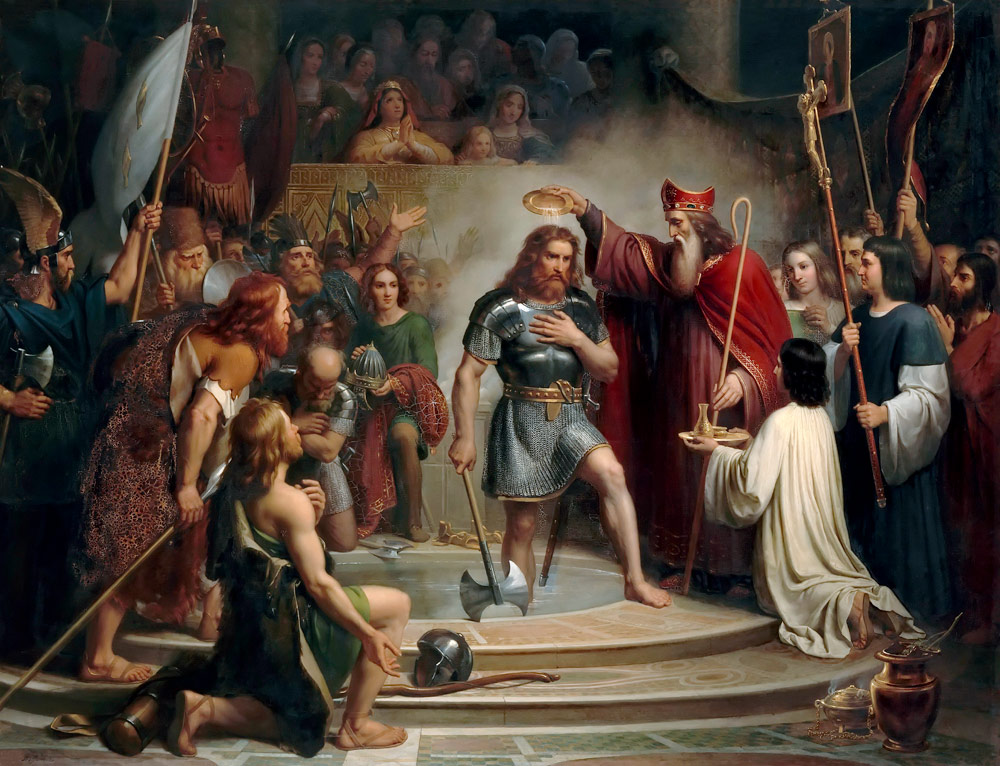
I guess that we are backed by a long line of "violent" heroes.
Clovis slamming his fist down and shouting "If only I had been there with my Franks!" when he was told the story of the crucifixion should fill all Catholics with a sense of pride.
I'm sure that Hernan Cortez is labeled as one on the most violent Catholics who ever lived. These inspirational short stories are so important to defining what true Catholic force looks like.
This unforgivable labeling of Catholic heroes as violent oppressors who were obsessed with killing has only created a generation where bravery is suppressed, a loss of the sense of knighthood and the disappearance of virtue. This deprivation of noble force has made a weak generation and has thrown off balance the minds of the youth, especially boys. (Consider the smashing blow that was felt by the men of history as well as the repercussions on the day that a president of the free world declared that there would be peace without victory after the First World War?)
Ten Favorite Inspirational Short Stories About Catholic Heroes You Are Going To Love In Defenders of Christendom
James Fitzhenry has compiled a list of inspirational short stories about daring Catholic heroes in his book Defenders of Christendom. Through the inspirational short stories contained in this work, he reminds modern-day Catholics of the attitude and bravery that defined an epoch and saved a civilization.
In this book which is a collection of inspirational short stories you will read about:
- Bohemond and the siege of Antioch
- The First Crusade
- Dieudonne de Gozon who's headstone reads "Dragon Slayer"
- The Knights of St. John
- The Order of Hospitallers who the sultan's favorite wife would raise a personal fund to destroy
- Janos Hunyadi called the White Knight of Wallachia
- Skanderbeg who after spending years as the sultan's favorite fighter would later become the bane of life to the latter
- The Siege of Rhodes and Malta
- The valiant deeds of the Grand Master Jean la Vallette
- Finally, Don Juan of Austria and the Battle of Lepanto
Three personal favorite inspirational short stories of mine from this book were about the Dragon Slayer, Skanderbeg and Don Juan of Austria. I will give you a taste of the unforgettable heroes who are presented in this novel.
Knights And Dragons - The Short Story About Dieudonne de Gozon "The Dragon Slayer"
I believed that dragons were legendary creatures that were a symbol of evil or a representation of vice. I thought that stories of knights that fought against them were an allegory of a parallel battle of another nature like heresy or vice.
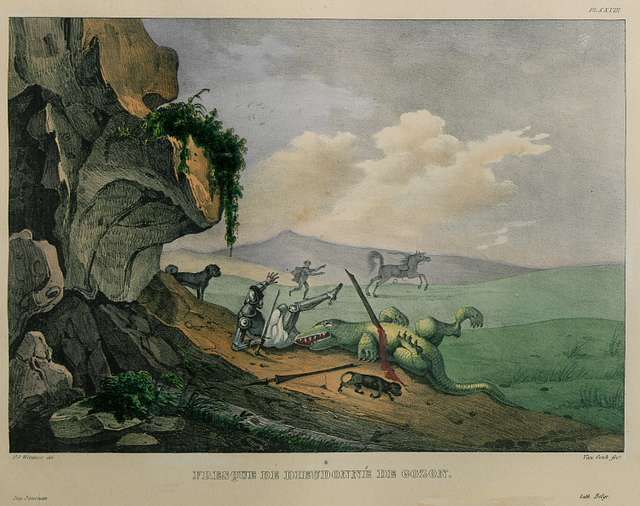
After reading the story of Dieudonne de Gozon I have a different opinion of the legendary creature.
Although the fight with the dragon is a physical battle, Dieudonne later also faces a spiritual inner battle with a dragon.
He proves that he is equally a knight then he brushes aside the temptation and is then doubly honored by the people.
After his fight with the man-eating monster the head was on display at the city's gates and eye witnesses have left their accounts of what it looked like. Their testimonies are relayed in Mr. Fitzhenry's book. Whether you are left believing in the real existence of dragons or not, no man can contest that Gozon's headstone reads, "Here lies the Dragon Slayer".
Man Of War Skanderbeg - Muslim Conditioned Machine Who Later Offered His Sword In Service Of The Church
Now here is a prime example of a Catholic knight that war was so ingrained that "he had to wage battle from time to time." And he had enough enemies around to provide the opportunity to exert his God-given energy. An entire article could be dedicated to this inspiring hero but I will force myself to be brief. If you want more, get Defenders of Christendom.
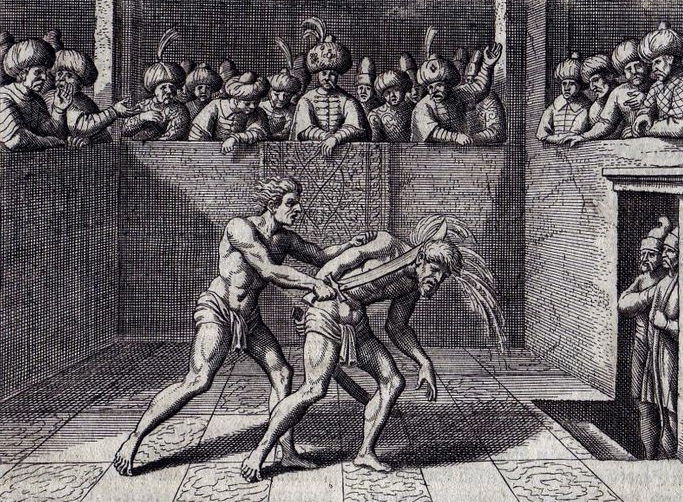
Skanderbeg was captured by the Muslims when he was a child. He was raised as one of them and became such a fierce fighter that he was a particular enjoyment to the sultan.
So detached was he from his faith and culture that he would take any fight "to defend the honor of the Turkish court."
After his conversion and escape from the sultan, Skanderbeg did everything in his power to stop the advances of Islam. Once a particular favorite of the sultan, he was now a particular thorn in his side.
The most inspiring thing about Skanderbeg was the fact that he was far from perfect. He was not your modern pacifistic Catholic. Far from laying down his arms and putting aside his fighting talent he put it to use for the glory of the Heavenly court. "Naturally possessed of a fiery temper, anger would go to his head quickly and set his eyes ablaze. But he would dominate his anger, biting his lips until they bled. His courage stemmed from this struggle over his evil passions."
What support he did not receive from his fellow Catholics to join forces against a common enemy were most likely attributed to the fact that they did not want to associate with the violent Skanderbeg.
A Definite Favorite From These Inspirational Short Stories: Last Defender of Europe Against the Turks In the Battle of Lepanto
I have already written extensively on Don Juan of Austria and the Battle of Lepanto but there were things in this book that I had never heard before. The battle array described in detail, the woman who joined the fight in order to avenge the injustices done to women by the Muslims, and of course, the power of Our Lady at the turning point of the battle are all covered in Defenders of Christendom!
"The More He Is Buffeted The More Strongly Will He Triumph"
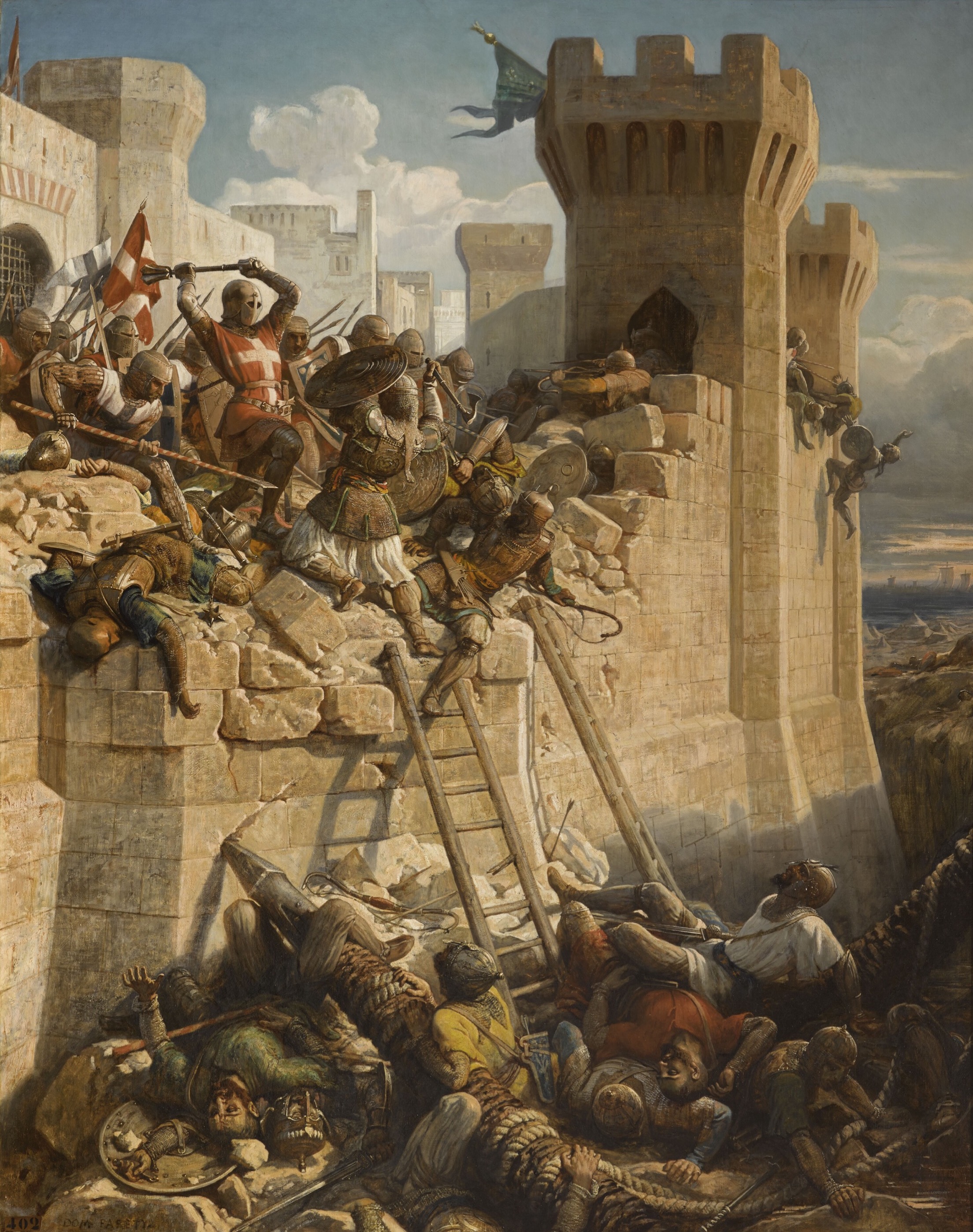
Many of the heroes mentioned in the book, Defenders of Christendom were forced to face their enemies without the help of their Catholic neighbors. This fact proves that there was some form of evil from the inside of Europe. Whether it was pride, envy or sloth, it is a certainty that it was shameful behavior for any Catholic knight to stand down while their enemies faced off with their neighbors.
James Fitzhenry writes of these, "Perhaps is it too much to expect that their vision should penetrate the darkness that spread over the land, but for whatever reason most seemed not to perceive the true nature of the enemy who marched westward, consuming and defiling once Christian domains as they passed."
Perhaps they thought that peace with the Infidel could only be attained through treaties and not war? Perhaps they thought that they were performing their Catholic duty by not taking up arms? Fitzhenry makes this very point when he says, "If you are not fighting, then you have already surrendered."
Why then were they so willing to rebuke and attack these Catholic heroes? "They were forever unwilling to raise a hand against their mortal enemy, yet ever ready to strike at a Catholic hero who risked everything for their common defense." These rebukes only added to the latter's glory, for as Thomas of Celano points out, "The more he is buffeted the more strongly will he triumph."
At the time of Janos Hunyadi's death, Pope Pius II lamented, "We are ashamed that the lukewarmness of Christendom is so great. Some run after their pleasures, others are enchained by avarice."
To summarize with the formerly mentioned quote: "It is a modern fallacy to suggest that a Catholic must be a complete pacifist who will stand by and do nothing to defend his faith, his culture, or his homeland against oppression."
Catholics are fighters by nature. Why else are we called Soldiers of Christ? Why else do we follow the banner of Christ our King in the daily conflict of life? Sports and other competitions are not spiritual battles but if you spend your childhood never honestly harming someone or something in your desire to win, will you ever be able to stand on the day that the physical or spiritual dragon enters the field in your life?
"Blessed be the Lord my God, who teacheth my hands to fight,
and my fingers to war."
(Psalms 143:1)
Subscribe To Our FREE Email Newsletter:
Our Mission
We believe storytelling has the power to shape souls. In a world where mainstream media often undermines faith and virtue, we are dedicated to reclaiming the art of filmmaking for Christ and His Church. Our mission is simple yet bold: to populate the movie industry with good, Catholic films that inspire, uplift, and ignite a love for truth and beauty.
Populating the movie industry with good, Catholic films that inspire, uplift, and ignite a love for truth and beauty.
